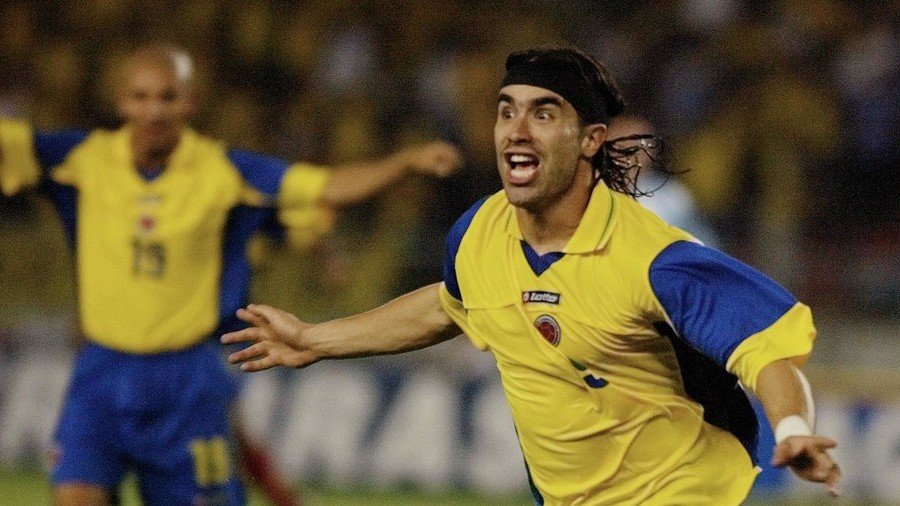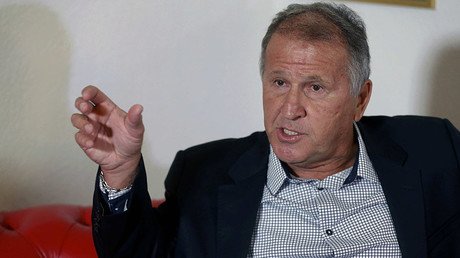News
‘The recognition for what we have done here is tremendous’ - Juan Pablo Angel on Colombian football
For a country who has produced an assembly line of talent Colombia have never made the impact at a World Cup expected of them. One of those players, Juan Pablo Angel, explains the DNA of Colombian football to RT’s Stan Collymore.
Despite having produced the like of Carlos Valderama, Faustino Asprilla, Freddy Rincón and, more recently, Falcao and James Rodriguez, the true impact of Colombian football has never really been felt on football’s biggest stage.
A quarter final sport in Brazil four years ago remains their best result in the five tournaments they have competed in thus far but hopes remain high that this summer in Russia will be the stage for them to make a seismic impact on global football but why hasn’t that happened yet? Ex-Aston Villa and Colombian marksman Angel explains to Stan Collymore.
Today's Stan Collymore Show on @RT_com for you to enjoy!We're in Colombia with legends @HiguitaRene and @JUANPABLOANGEL in Medellin, and an incredibly poignant interview with the sister of murdered Colombian international, Andres Escobar. Enjoy! https://t.co/OnYMnI9G2f pic.twitter.com/RdM34psI37
— Stan Collymore (@StanCollymore) May 25, 2018
“I think it’s a number of things,” he says. “One has to do with the project behind every team that has played for Colombia. Then there is the level of competition in the South American qualifiers. You normally get Argentina and Brazil and you take those two places for granted, then you have another two and a half spots to fight for.”
Nowadays Colombia tend to compete against Chile, Ecuador and a resurgent Peru for the remaining qualification spots but as difficult as the South American system is to emerge from, Angel says that the system cannot be changed. “It has always been that way,” he explains.
In 1994 Colombia entered the World Cup with a group of players who were thought capable of winning the whole tournament. While that tournament ultimately ended in tragedy, as Angel explains to Collymore in the video, that was still a unique group of players.
“First off, there was a lot of talent. Asprilla, for me arguably the best player that we’ve had, Valderama, Rincón, Higuita, Andres Escobar - a lot of talented players but there was also a confidence with this group of players. The majority of that group used to play for Nacional. They used to train every day together. They knew each other better than anybody and the coach used to basically be with them every day. I think that played a part.”
As for the domestic game, Angel appears proud of the strides it has made in the last decade.
“The biggest sport in the country is football,” he says. “The league has changed dramatically over the last ten years. It was a league that was owned in majority by people from the cartels. Now there is a lot of companies owning teams. The structure of the league has changed [but] it is not what it should be for the amount of talent that we have got.
“In the last six or seven years it has been absolutely tremendous what has happened to the clubs. It has transformed the recognition throughout the world for what we have done here is tremendous.”
That said, the currency in the Colombian domestic game has always been their young players. Every year another crop of talented youngsters travels to Europe or elsewhere looking to make their names and it is this economy, Angel says, which props up the entire Colombian football system.
“The academies in South America are 100 percent the most important thing that we’ve got because in South America we have to sell players to survive. We depend on those youngsters but every club has a different infrastructure and different philosophy in trying to develop these kids.”

